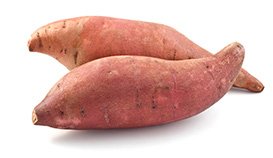Summer is winding down and the cold weather is on its way. You know what that means: It's bulking season! And, as everyone knows, drug-free bodybuilders have to get fat to put on muscle, right? Wrong!
The truth is that packing on fat can actually be counterproductive to your long-term progress. Assuming your end goal is a big, lean, aesthetic physique, then that fat is going to have to come off eventually. So why waste time and energy putting it on in the first place? The more fat you have, the longer you'll have to diet.
Extended cutting periods increase the chance that you'll lose some of that hard-earned muscle. Dirty bulking may seem like a dietary joyride in the short term, but you'll be kicking yourself later if things get out of hand.
So, how do you stay lean while getting big? It's not rocket science, but it certainly takes more thought, planning, and daily effort than an eat-everything-in-sight plan would.
Doing The Muscle Math
You can't avoid fat gain entirely. Adding purely lean tissue is all but impossible—but here's a little math that can help you understand why.
Imagine you began training at 150 pounds with 15 percent body fat. If you gained 25 pounds of purely lean mass, you'd be sitting at 175 pounds with about 13 percent body fat. If you gained another 25 lean pounds, you'd be 200 pounds at 11 percent.
Over time, that kind of dramatic transformation is possible, but you can't do it all in one fell swoop. Nobody gains solely muscle; there's also always some fat, even a tiny amount. The question is how much.
Imagine you gained 22 pounds of muscle and 3 pounds of fat from the same starting point. That would put you at 175 pounds with about 14.5 percent body fat. Even if you gained some fat, you'd still be slightly leaner than you were before.
Depending on your goals and genetics, you may have to gain a higher proportion of fat than my example, but the point still stands: You can stay relatively lean because proportionally, you're adding more muscle than fat. Muscle gain doesn't have to come coupled with a belly.
Start Out Right
One of the most important aspects of a clean bulk is a lean starting point. Since you're inevitably going to see at least some fat gain, you need to be lean enough from the get-go to have some wiggle room. If you're not already comfortable taking off your shirt in public, you shouldn't be trying to gain weight! Plus, if you start out fat, you won't be bulking long before you need to switch gears and diet.
A high level of body fat may actually hinder muscular gains and lead to further fat gains! Large fat deposits send hormonal signals that mess with your body's nutrient partitioning, making it more likely that any given caloric load will be stored as fat. When you're lean, however, you've got a revved-up metabolism and a body that wants to build muscle, not store fat.
Time Your Carb Intake
Apologies to protein, but carbs may be the most anabolic nutrient you can consume; they will easily cause growth in muscle tissue and fat cells alike. Therefore, the key to lean gains is manipulating your carbohydrate intake for maximum benefit. The best way is to figure out how many carbs you need to fuel your workout and promote muscle growth.
Consume about half of those quality carbs in your pre-workout meal. Follow your training session with a glucose-laden post-workout shake, and eat the remainder of your carbs during your first solid post-workout meal.
What about breakfast? Most people don't need to eat carbs in the morning, unless breakfast is also their pre-workout meal. By limiting your carbs to the pre-, intra-, and post-workout periods, you keep your insulin low the rest of the day. Low insulin levels usually mean that you'll be less likely to store fat and more likely to burn a little body fat during the day.
So, unless you're super-skinny and struggling to consume enough calories, most of your meals should come in the form of protein and fats.
Keep Track of Macros
Each of us has an ideal mass-building macronutrient profile. So I can't make a blanket recommendation for the amounts of carbs, fats, and protein you need. I do believe everyone needs to track what they eat. If you want to gain muscle with minimal body fat, maintain a moderate caloric surplus. What's more, make sure that surplus comes from the right nutrients. An extra 100 grams of carbs or fats affects your body much differently from 100 extra grams of protein.

Plenty of free digital programs track proteins, fats, carbs, and calories. This extra effort will pay off big time, especially when you need to make adjustments down the road. When you know how much you eat each day, gaining or losing weight becomes a simple matter of math.
Don't fall for the current "if it fits your macros" craze, either. Sure it's OK to swap out white rice for sweet potatoes or whole-wheat bread for oatmeal, but don't think you can eat candy and ice cream every day so long as they fit into your carb count.
Weight gain and loss are a lot more complex than "calories in, calories out." Junk food has hormonal influences on your body and will not help you reach achieve optimal results from your hard efforts.
Slow and Steady
Allow numbers be your guide. Aim to gain 2-3 pounds per month; anything more is likely to be nothing but fat. More important than the weight gain, though, is what you do in the gym.
Muscular gains should go hand-in-hand with increased strength. If you're gaining body weight but not hitting PRs, you're just getting fatter!
If you start out lean and spend at least a year slowly gaining lean mass, you'll be amazed with your results!

